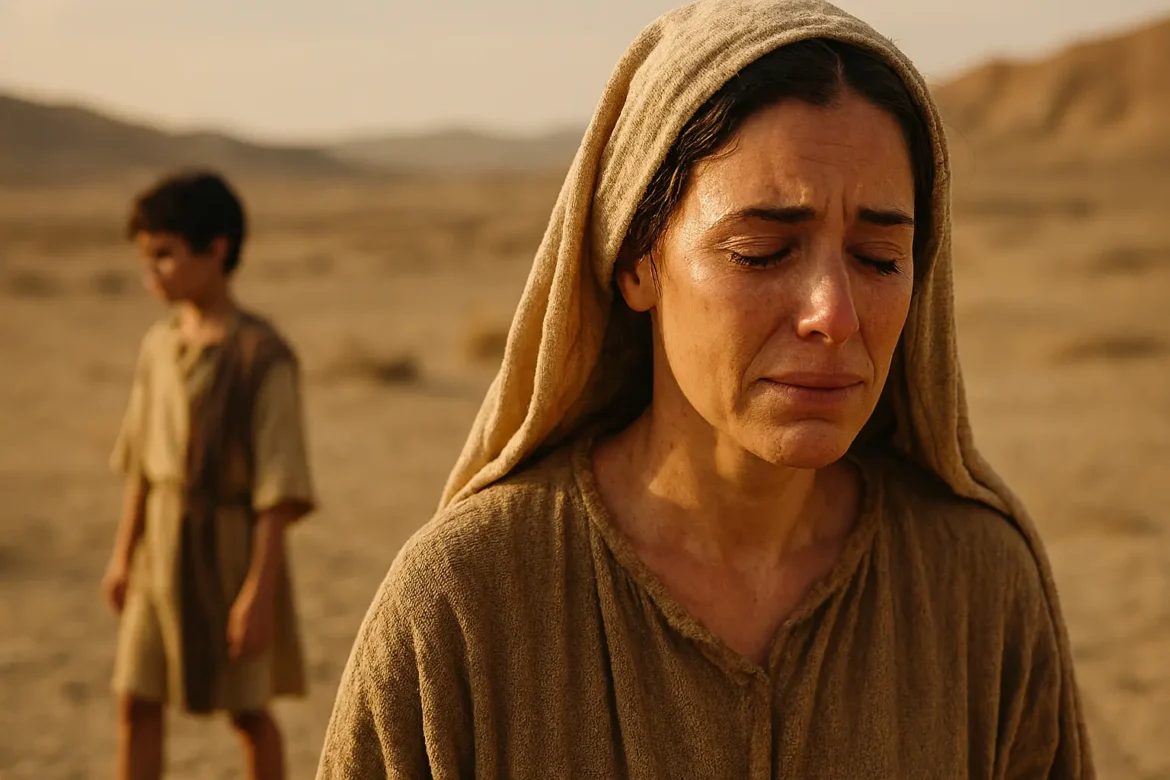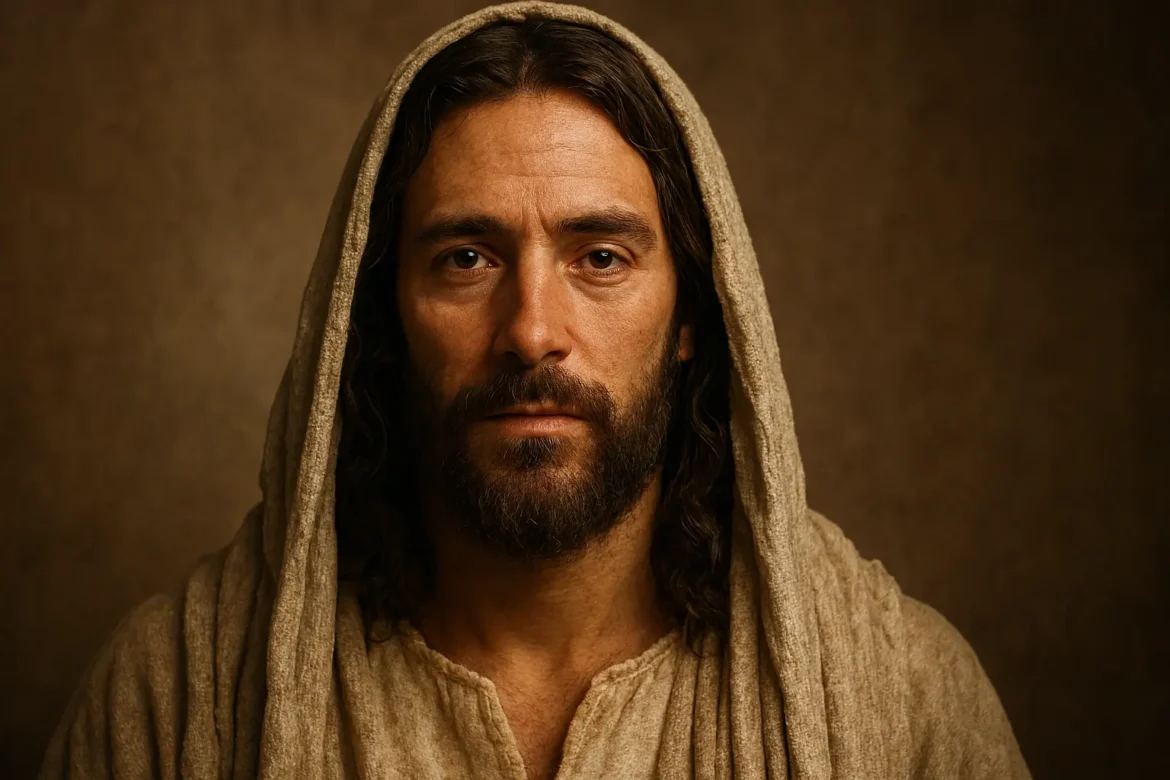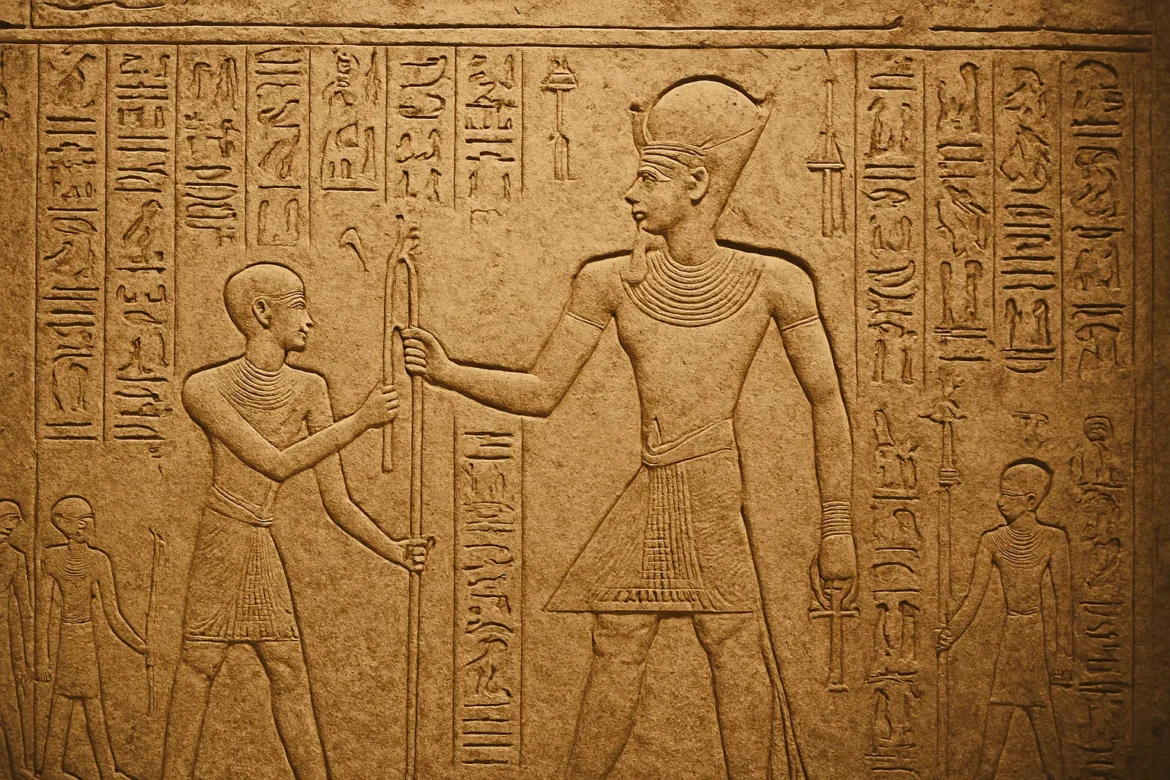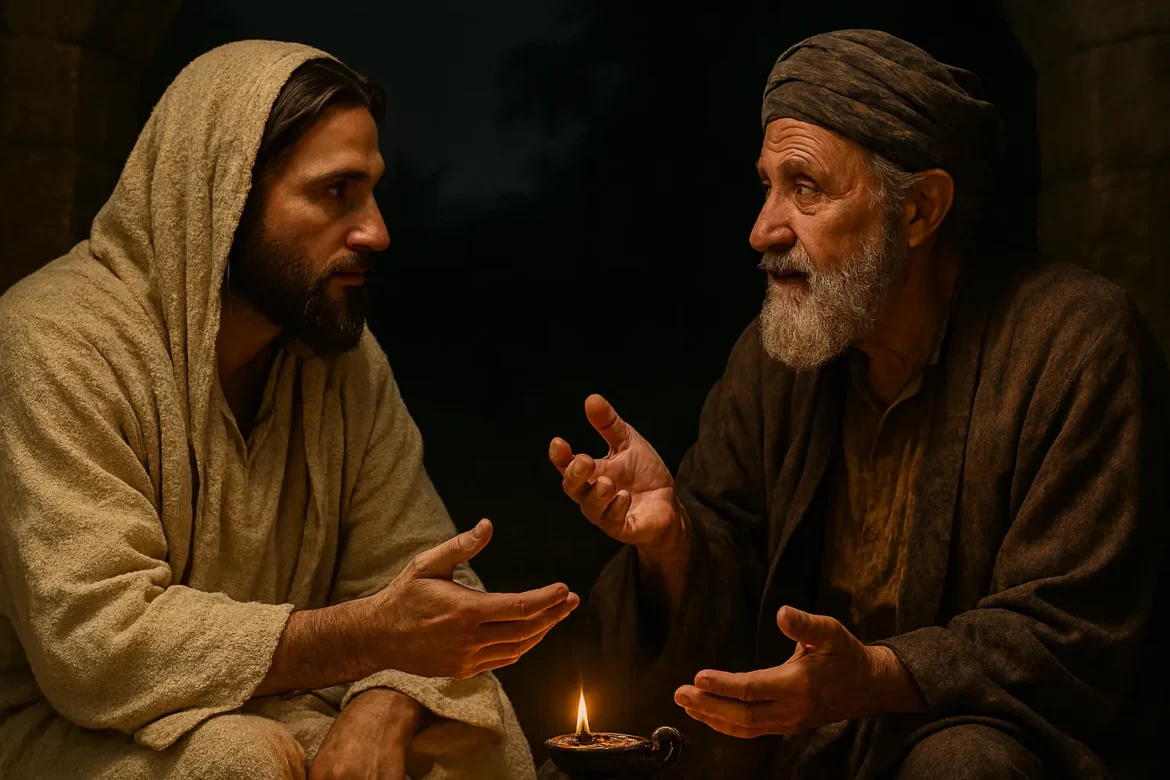Ishmael was the firstborn son of Abraham with Hagar, who was the servant of his wife. The Lord God had a promise regarding Abraham’s life. Then God calls Abraham and says:
The Lord had said to Abram, “Go from your country, your people and your father’s household to the land I will show you. I will make you into a great nation, and I will bless you; I will make your name great, and you will be a blessing. I will bless those who bless you, and whoever curses you I will curse; and all peoples on earth will be blessed through you.” (Genesis 12:1-3, NIV)
At that point in the story, Sarah, Abraham’s wife, was barren and, ten years later, the couple still had no children. God did not forget the promise He had made to Abraham, so much so that the Lord reaffirmed His promise to Abraham, but the couple tried to help God’s promise come to pass.
Sarah then suggests that Abraham build a family through her servant, Hagar.
So Sarai said to Abram, “Look now, the Lord has prevented me from bearing children. Please go to my maidservant; perhaps I can build a family by her.” And Abram listened to the voice of Sarai. (Genesis 16:2, NIV)
Abraham agrees with Sarah’s idea, but Hagar, upon seeing that she was pregnant, began to look with contempt toward her mistress.
And he slept with Hagar, and she conceived. But when Hagar realized that she was pregnant, she began to despise her mistress. Then Sarai said to Abram, “You are responsible for the wrong I am suffering; I put my slave in your arms, and now that she knows she is pregnant, she despises me. May the Lord judge between you and me.” (Genesis 16:4-5, NIV)
Abraham told Sarah that Hagar was in her power to do whatever she wanted. Then Sarai treated her so badly that, in the end, Hagar fled.
God saw Hagar in the desert. The angel of the Lord makes her a promise, saying that her descendants would be multiplied in such a way that they could not be counted.
The angel of the Lord also said to her: “You are now pregnant and you will give birth to a son. You shall name him Ishmael, for the Lord has heard of your misery. He will be a wild donkey of a man; his hand will be against everyone and everyone’s hand against him, and he will live in hostility toward all his brothers.” (Genesis 16:10-12, NIV)
Ishmael means “God hears.” Hagar called God “You are the God who sees me” and that place was called “Beer Lahai Roi.” Hagar returned to Abraham and Sarah, as God had instructed her to do. Then came the moment when Hagar gave birth to her son, and he was named Ishmael, as God had instructed.
Thirteen years after Ishmael’s birth, God gave Abraham the sign of circumcision. God reminded Abraham of His promise and told him that Sarah would have a son and that kings would come from their children.
Then God said to Abraham, “As for Sarai your wife, do not call her Sarai, for her name is to be Sarah. I will bless her and will surely give you a son by her. I will bless her so that she will be the mother of nations; kings of peoples will come from her.” Abraham fell facedown; he laughed and said to himself, “Will a son be born to a man a hundred years old? Will Sarah bear a child at the age of ninety?” And Abraham said to God, “If only Ishmael might live under your blessing!” (Genesis 17:15-18, NIV)
God’s promise was something wonderful, but Abraham genuinely cared about Ishmael. Then God replied:
Then God said, “Yes, but your wife Sarah will bear you a son, and you will call him Isaac. I will establish my covenant with him as an everlasting covenant for his descendants after him. And as for Ishmael, I have heard you: I will surely bless him; I will make him fruitful and will greatly increase his numbers. He will be the father of twelve rulers, and I will make him into a great nation. But my covenant I will establish with Isaac, whom Sarah will bear to you by this time next year.” (Genesis 17:19-21, NIV)
Even though Isaac was the son through whom the Messiah, Jesus, would descend and through whom God would fulfill His covenant with Abraham, God did not forget Ishmael.
Sarah conceived and Isaac was born when Abraham was 100 years old.
Now the Lord was gracious to Sarah as he had said, and the Lord did for Sarah what he had promised. Sarah became pregnant and bore a son to Abraham in his old age, at the very time God had promised him. Abraham gave the name Isaac to the son Sarah bore him. When his son Isaac was eight days old, Abraham circumcised him, as God commanded him. Abraham was a hundred years old when his son Isaac was born to him. Sarah said, “God has brought me laughter, and everyone who hears about this will laugh with me.” And she added, “Who would have said to Abraham that Sarah would nurse children? Yet I have borne him a son in his old age.” (Genesis 21:1-7, NIV)
When Isaac was weaned, probably around three or four years old, Sarah saw Ishmael, probably about seventeen years old, mocking him. She told Abraham to drive out Hagar and Ishmael.
The child grew and was weaned, and on the day Isaac was weaned Abraham held a great feast. But Sarah saw that the son whom Hagar the Egyptian had borne to Abraham was mocking, and she said to Abraham, “Get rid of that slave woman and her son, for that woman’s son will never share in the inheritance with my son Isaac.” (Genesis 21:8-10, NIV)
Abraham was very distressed by this, but God told him to do as Sarah had said.
The matter distressed Abraham greatly because it concerned his son. But God said to him, “Do not be so distressed about the boy and your slave woman. Listen to whatever Sarah tells you, because it is through Isaac that your offspring will be reckoned.” (Genesis 21:11-12, NIV)
Abraham got up early in the morning and prepared food and a skin full of water and placed them on Hagar’s shoulders. Mother and son wandered in the desert until their water and supplies ran out and they were near death.
Early the next morning Abraham took some food and a skin of water and gave them to Hagar. He set them on her shoulders and then sent her off with the boy. She went on her way and wandered in the Desert of Beersheba. When the water in the skin was gone, she put the boy under one of the bushes. Then she went off and sat down about a bowshot away, for she thought, “I cannot watch the boy die.” And as she sat there, she began to sob. (Genesis 21:14-16, NIV)
Hagar separated from Ishmael and went to sit alone, about a hundred meters away, not wanting to see him die, and cried. “God heard the boy crying, and the angel of God called to Hagar from heaven.”
God heard the boy crying, and the angel of God called to Hagar from heaven and said to her, “What is the matter, Hagar? Do not be afraid; God has heard the boy crying as he lies there.” (Genesis 21:17, NIV)
He asked Hagar what was troubling her and told her not to fear, for God had heard the boy’s voice. God tells Hagar that He would make Ishmael a great nation. He also opened her eyes to a well of water.
Then God opened her eyes and she saw a well of water. So she went and filled the skin with water and gave the boy a drink. (Genesis 21:19, NIV)
Ishmael and Hagar lived by God’s provision. The Lord God was with the boy as he grew up in the desert. Ishmael became an archer and settled in the Desert of Paran, and his mother got him a wife from Egypt.











